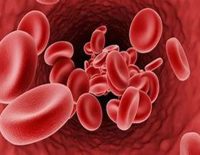Obesity can lead to cancer, say doctors

February 2, 2023: Obesity can lead to the development of 13 different types of cancer. People with obesity or severe obesity are 1.5 to 4 times at risk of developing cancers like Oesophagus, Stomach, Liver, Pancreas, Colorectal, Gallbladder, Kidney, and Thyroid. This was said by Dr. Tausif Ahmed Thangalvadi, Medical Director at NURA, a collaboration between Fujifilm Healthcare and Dr Kutty’s Healthcare offering AI-enabled imaging in Bengaluru, highlighting key findings from a Working Group document of International Agency for Research on Cancer (IARC).
“Research has shown that obese women also face the impact of reproductive organ cancers like Endometrial (4-7 times the risk compared to non-obese women), breast cancer (1.5 times) and ovarian cancer (1.1 times). Breast cancer and colorectal cancer are the most common obesity related cancers in women and men, respectively, with 30% higher risk compared to non-obese people. A 2019 global study found that obesity related cancers accounted for nearly 4% of the global burden of cancers,” Dr. Tausif Ahmed Thangalvadi said.
The correlation between obesity and cancer is worrying, considering that India is suffering from an obesity epidemic, with nearly 7 crore people affected with morbid obesity. As per an ICMR-INDIAB study published in 2015, the prevalence rate of obesity in India ranges from 12 to 30% and of central obesity from 16 to 36%. As per UNICEF’s World Obesity Atlas 2022, India is predicted to have 2.7 crore children with obesity by 2030.
Said Dr. Tausif Ahmed Thangalvadi: “There are many ways in which obesity can increase the risk of cancer. Fat tissue in the human body releases excess levels of oestrogen, which in women leads to an increased risk of Breast, Endometrial and Ovarian cancer. High levels of Insulin and Insulin-like growth factor (IGF-1) in obese people increases risk of colorectal, kidney and prostate cancer. Obesity also leads to chronic inflammation and oxidative stress on tissues, further increasing the risk of cancers.”
“Over the last two years, we at NURA have screened more than 6,000 healthy asymptomatic people. Nearly 70% of them had visceral fat levels above the accepted threshold of 100 cm, with nearly half found to have severe obesity with visceral fat levels above 160 cm. Men were twice as likely to have excess visceral fat compared to women,” he added.
The doctor suggested many preventive measures for obesity-related cancers. “The first step is to reduce weight. In a 2019 study published in the JNCI cancer spectrum journal, it was noticed that people who lost 5% of their body weight had a much lesser risk of obesity-related cancer, especially endometrial cancer. The same was found true for breast cancer in a 2020 study. Yet another study in 2019 found that people who underwent bariatric surgery for morbid obesity were found to have a reduced risk of breast, prostate, and colorectal cancers. Following a healthy diet plan, regular exercise, and screening regularly for obesity and cancer can further help reduce risk of obesity and cancers,” said Dr. Tausif Ahmed Thangalvadi.
NURA offers multiple screening tests not only for cancers but also for obesity. For cancers, NURA uses a combination of ultra-low dose CT scans, tumour markers and procedures like mammography, colposcopy, and FIT kit to detect many types of cancers early, including Lung, Colorectal, Oral, Prostate, Liver, Kidney, Pancreas, Breast, Cervix and Ovarian cancers. For obesity, NURA uses ultra-low dose CT scan to accurately measure visceral fat. It also uses the DEXA scan to give fat-muscle ratio and distribution, giving people key information to focus on their exercise and fat reduction plans.








Comments